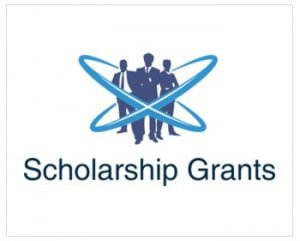University of Western Sydney, Graduate Research School
There are a number of Clinical Classification & Coding and Terminology systems that are developed as international standards and adopted by various countries including Australia.
These include (but not limited to):
- International Classification of Diseases (ICD),
- International Classification of Functioning, Disability and Health (ICF)
- International Classification of Health Interventions (ICHI) developed and maintained by WHO-World Health Organisation, and
- Systematized Nomenclature of Medicine-Clinical Terminology (SNOMED-CT) developed and maintained by IHTSDO-International Health Terminology Standards Development Organisation.
These classification and terminology systems are developed independently to each other and expected to work in harmony within clinical software. However due to lack of harmonisation between these clinical terminology and classification systems, there is much human involvement required in translating from one to another. Such human involvement creates inconsistencies and errors in coding.
With wider usage of software for management of health data, there is an urgent need for having computer-assisted harmonisation between these classification and terminology systems. Further these are evolving ontologies. Therefore, there is a greater need for keeping the ontological continuity as the core classification or terminological systems evolve.
This research is focused on involving machine learning techniques for the purpose extracting relevant ICD, ICHI and ICF codes, based on SNOMED-CT terms found in free text data that relates to a particular episode of care. Also other information such as
- previous mapping of similar cases to ICD, ICHI or ICF codes
- other non-clinical (age, sex) and historical data (chronic diabetes) relevant to the episode of care
- clinician or facility where patient was treated, etc., would require to be considered in improving the accuracy the algorithm.
What does the Scholarship provide?
- Domestic students receive a tax-free stipend of up to $30,000 per annum for up to 3 years, and a funded place in the doctoral program.
- International students receive a tax-free stipend up to $30,000 per annum. Outstanding students may be awarded a Tuition Fee Waiver valued at approximately $24,000 per annum for up to 3 years.
- International students receive up to $3,267 towards the cost of an Overseas Student Single Health Care Policy.
Selection criteria
- Applicants should hold an Australian First Class Bachelor Honours degree, OR equivalent qualifications and/or research experience (including research publications) in the field of computer science.
- Knowledge or familiarity of clinical classification and terminology systems such as ICD, ICF, ICHI and SNOMED-CT.
- High-level of interest and knowledge in machine learning theories and technologies.
- High-level of programming skills in object oriented programming languages.
- A Proven research record in computing, preferably related to health informatics.
- International applicants must also demonstrate a high level of proficiency in the English language. Please refer to the University’s website for information about English Language Requirements.
Next steps
How to apply
- Submit a scholarship application form, CV, and all other relevant supporting documentation to the Graduate Research School (grs.scholarships@westernsydney.edu.au) before the closing date.
- Applicants should ensure that all relevant documents are certified according to Western Sydney University requirements. Incomplete applications will not be considered.
- The application form can be downloaded from the Graduate Research School’s Project Scholarships Page.
- If you have any queries regarding the application process or enrolment, please contact the Graduate Research School: grs.scholarships@westernsydney.edu.au
- Selected applicants will be required to attend an interview, either face to face, by Skype or similar technology.
Applications will be considered until the position is filled.
View this listing on the PhDSeek.com website at http://www.phdseek.com/phds/1352




